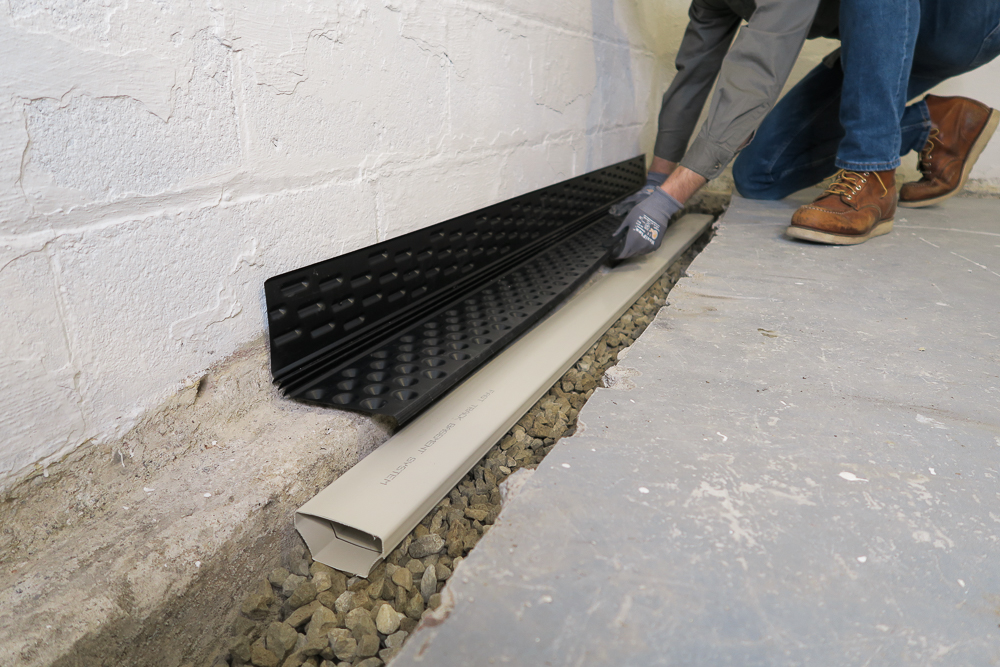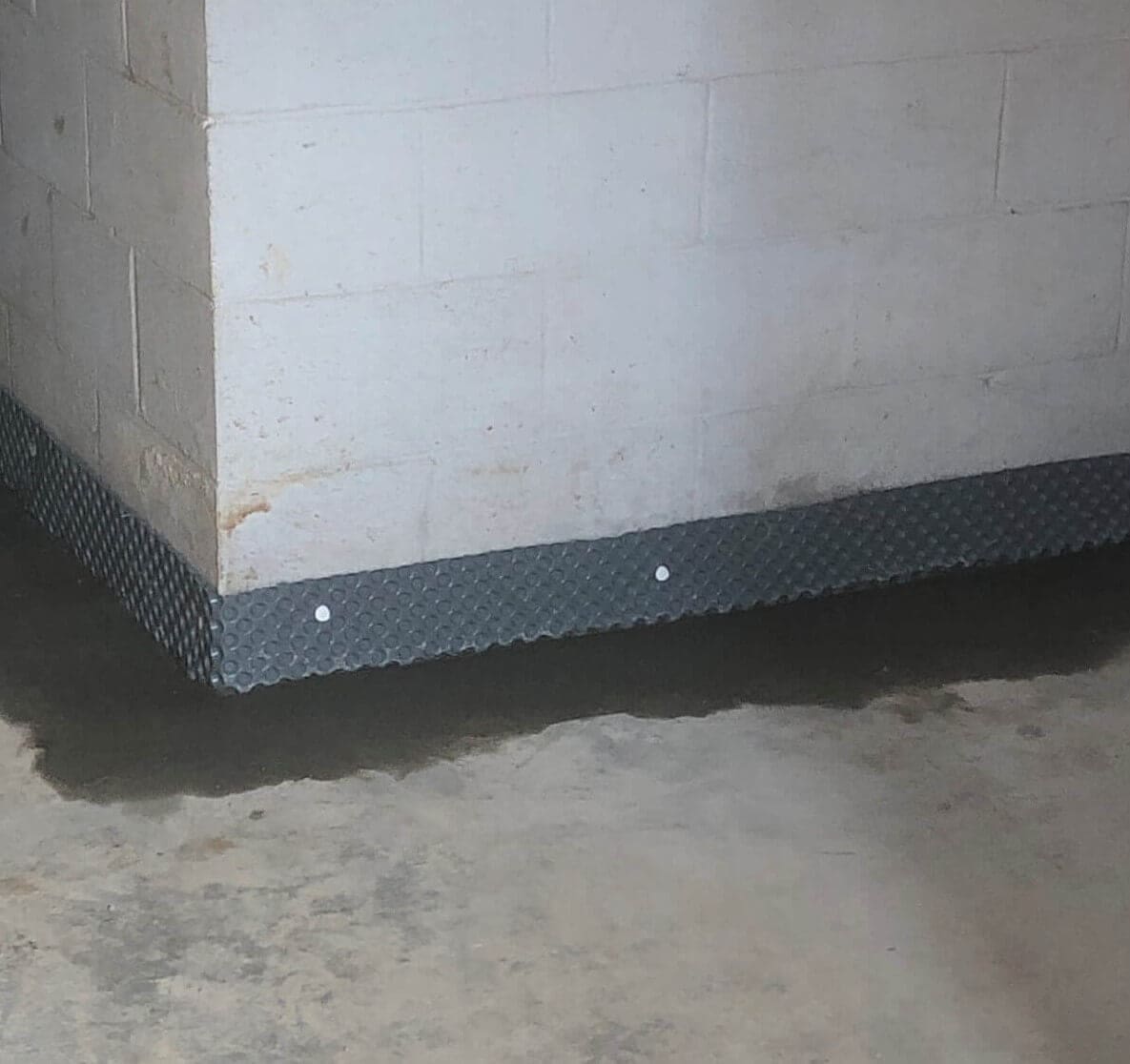Basement Waterproofing Mistakes Homeowners Make — And How to Avoid Them
Wiki Article
Checking Out the Various Methods of Basement Waterproofing and Their Benefits
Cellar waterproofing is crucial for keeping a stable and dry environment. Different techniques exist, each with distinct advantages. Interior sealers safeguard against wetness intrusion, while exterior systems attend to drain issues. Sump pumps and French drains handle water efficiently, and dehumidifiers manage humidity levels. Understanding these alternatives can help property owners make notified choices. The appropriate service typically depends on certain conditions and requirements. What aspects should one think about when choosing the most effective approach?Interior Sealants: An Efficient Barrier Against Wetness
Interior sealants serve as an essential line of defense against wetness breach in basements. These items are made to create a water resistant barrier on floors and wall surfaces, effectively avoiding water from seeping in. Available in various types, including paints, finishings, and sealers, they can load splits and pores in concrete, making sure an extra safe environment.The application process usually includes cleaning the surfaces to remove dust and debris, adhered to by the cautious application of the sealant. As soon as healed, these products boost the resilience of the basement while lowering moisture levels, which can cause mold growth and architectural damage.Moreover, indoor sealers are commonly easy to apply and can be an economical option for property owners wanting to reduce moisture issues. By giving a trustworthy layer of defense, they play a vital duty in protecting the basement room, preserving both its stability and use.Exterior Waterproofing Equipments: Securing Your Foundation
Exterior waterproofing systems use a durable remedy when homeowners look for to safeguard their structures from water damage. These systems commonly entail applying water resistant membranes and water drainage systems to the exterior wall surfaces of a basement. By developing a barrier against groundwater, they successfully prevent wetness from penetrating the foundation (Water Solutions Omaha).One notable advantage of outside waterproofing is its capacity to deal with the source of water intrusion prior to it reaches the interior. This positive technique not only safeguards architectural integrity however likewise enhances the longevity of the home.Moreover, outside systems can improve the overall water drainage around the structure, lowering hydrostatic stress. This minimizes the possibility of cracks and heaving that can result from water build-up. Therefore, homeowners can appreciate a completely dry, steady cellar atmosphere, significantly enhancing property worth and convenience. Inevitably, outside waterproofing systems are an essential investment in keeping a healthy and balanced home structure
Sump Pumps: Managing Water Build-up Efficiently
Sump pumps play a vital function in managing water build-up in basements, giving an effective solution for homes prone to flooding or excess dampness. These gadgets are set up in sump pits, generally situated at the most affordable point of a basement, where they collect water that permeates in from the bordering dirt. When the water level rises, the sump pump triggers, successfully pumping out the excess water to an assigned drain location, consequently avoiding potential damages to the structure and interior spaces.There are two primary sorts of sump pumps: submersible and stand. Submersible pumps are mounted underwater, making them less noticeable and frequently quieter, while pedestal pumps are located above the sump pit and are less complicated to keep. By efficiently taking care of water accumulation, sump pumps not only safeguard against architectural damages but also add to a much healthier living setting by reducing humidity levels and stopping mold and mildew development.French Drainpipes: Redirecting Water Away From Your Home

Dehumidifiers: Minimizing Moisture Degrees for a Drier Setting
Basement waterproofing includes numerous approaches, and go to these guys dehumidifiers play a significant role in preserving a completely dry environment. By efficiently decreasing moisture degrees, dehumidifiers help protect against dampness accumulation, which can lead to mold and mildew development, structural damages, and unpleasant smells. These tools function by removing excess moisture from the air, producing a healthier and a lot more comfy space.In addition to improving air high quality, dehumidifiers can boost the effectiveness of various other waterproofing approaches, such as sealing and drainage systems. They assist preserve ideal humidity degrees, commonly between 30% and 50%, which is crucial for avoiding condensation on wall surfaces and floors.Moreover, modern-day dehumidifiers are energy-efficient and included functions like programmable settings and automated shut-off, making them user-friendly. Overall, including a dehumidifier into basement waterproofing intends provides a crucial layer of protection against moisture-related issues, thus guarding the home's stability.Frequently Asked Concerns

The Length Of Time Do Waterproofing Solutions Usually Last?
Waterproofing services normally last in between 5 to twenty years, depending on the technique made use of, top quality of materials, and ecological conditions. Regular upkeep and assessments can assist expand their efficiency and total lifespan.Can I Waterproof My Cellar Myself?
The specific considered whether to waterproof the basement separately. They discovered that while do it yourself options exist, knowledge of methods and materials is necessary to ensure performance, and specialist assistance may provide much better lasting results.What Are the Indications of Cellar Wetness Issues?
Signs of basement dampness concerns include noticeable water discolorations on walls, mildewy odors, peeling paint, mold and you could try these out mildew growth, and wetness on floorings. High moisture degrees might likewise show underlying dampness troubles needing attention to avoid further damage.Just How Much Does Basement Waterproofing Cost?
The expense of cellar waterproofing varies widely, generally ranging from $1,500 to $5,000. Elements affecting expenses consist of the seriousness of dampness issues, the picked method, and the geographical place of the property.Will Waterproofing Rise My Home's Value?
The concern of whether waterproofing enhances a home's value usually arises among house owners. Generally, effective waterproofing can improve residential property charm, reduce damages threats, and potentially cause higher resale costs, depending upon the regional actual estate market. By producing a barrier versus groundwater, they properly prevent dampness from permeating the foundation.One notable here are the findings advantage of exterior waterproofing is its ability to resolve the resource of water breach prior to it gets to the interior. Sump pumps play an important duty in managing water buildup in basements, giving an effective option for homes susceptible to flooding or excess moisture. When the water level climbs, the sump pump activates, successfully pumping out the excess water to a marked drainage location, therefore protecting against potential damages to the structure and indoor spaces.There are 2 major types of sump pumps: completely submersible and pedestal. Exterior Drainage Solutions. By routing groundwater and surface area water away from the foundation, French drains pipes aid avoid water buildup in cellars and creep rooms, minimizing the risk of structural damage and mold growth.Installation generally takes place around the boundary of the home, making sure that water is successfully drawn away. Signs of basement wetness issues consist of visible water spots on walls, moldy odors, peeling off paint, mold development, and wetness on floorsReport this wiki page